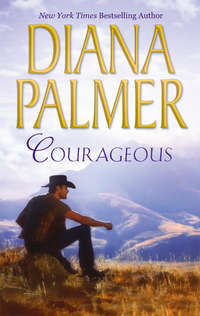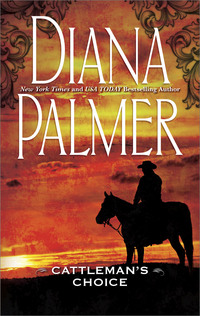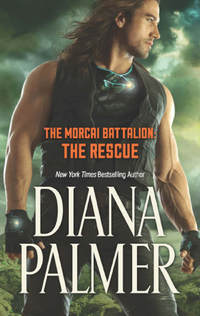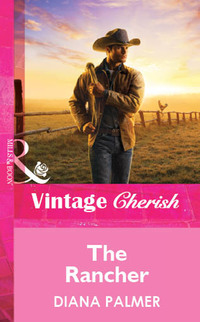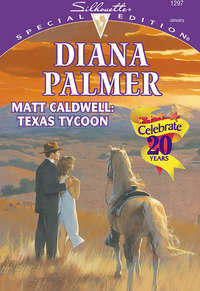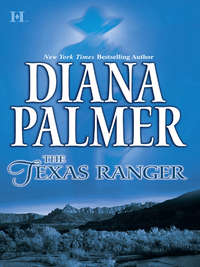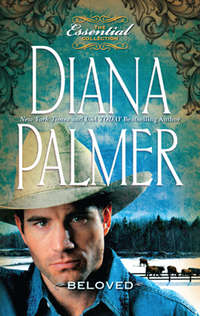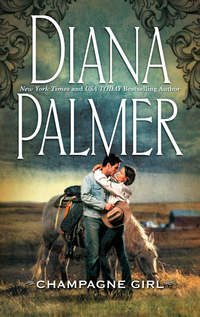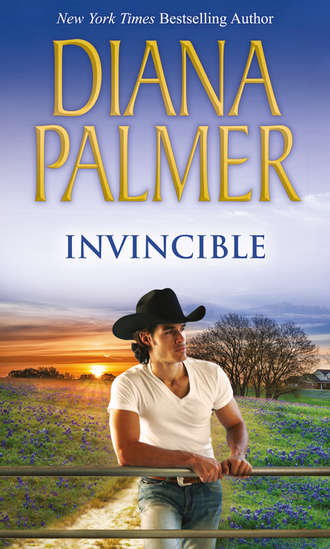
Полная версия
Invincible
He was still gaping.
“But my favorite is Alexander the Great. Of all the great military heroes, he was the most incredible strategist...”
“I don’t believe it.” He perched himself on the edge of her desk. “I know South Africans who couldn’t tell you who de Wet was!”
She shrugged. “I used to spend a lot of time in the library. They had these old newspapers from the turn of the twentieth century. They were full of the Boer Wars and that famous Boer General de Wet,” she laughed. “I almost missed class a couple of times because I was so entranced by the microfilm.”
He laughed. “Actually, I’m distantly related to one of the de Wets, not really sure if it was Christiaan, though. My people have been in South Africa for three generations. They were originally Dutch, or so my mother said.”
“Rourke is not really a Dutch name, is it?” she asked.
He sighed. “No. Her name was Skipper, her maiden name.”
“Was your father Irish?”
His face closed up. That one brown eye looked glittery.
“Sorry,” she said at once. “That was clumsy. I have things in my past that I don’t like to think about, either.”
He was surprised at her perception. “I don’t speak of my father,” he said gently. “Didn’t mean to unsettle you.”
“No problem,” she said, and smiled. “We’re sort of the sum total of the tragedies of our lives.”
“Well put.” He nodded thoughtfully. “I might reconsider about that marriage thing...”
“Sorry. My lunch hour’s over.”
“Damn.”
She laughed.
He studied her with real interest. “There’s this do, called a Valentine’s Day dance, I think. If you need a partner...?”
“Thanks, but I have a date,” she said.
“Just my luck, being at the end of the line, and all,” he chuckled.
“If you go, I’ll dance with you,” she promised.
“Will you, now? In that case, I’ll dust off my tux.”
“Just one dance, though,” she added. “I mean, we wouldn’t want to get you gossiped about or anything.”
“Got it.” He winked and got to his feet. “If you’ll pass that note along to the chief, I’ll be grateful. See you around, I expect.”
“I expect so,” she replied.
* * *
WHAT A VERY strange man, she thought. He was charming. But she really didn’t want to complicate her life. In his way, he seemed far more risky than even Carson, in a romantic sense.
When she got home, she mentioned his visit to her father.
“So now you know who Rourke is,” he chuckled.
“He’s very nice,” she said. “But he’s a sad sort of person.”
“Rourke?” he asked, and seemed almost shocked.
“Yes. I mean, it doesn’t show so much. But you can tell.”
“Pumpkin, you really are perceptive.”
“He said he’d take me to the Valentine’s dance. That was after he reconsidered the wedding, but I told him my lunch hour was over...”
“What?” he blurted out.
“Nothing to worry about, he said he wasn’t free today anyway.”
“Listen here, you can’t marry Rourke,” he said firmly.
“Well, not today, at least,” she began.
“Not any day,” came an angry voice from the general direction of the front door. Carson came in, scowling. “And what did I tell you about keeping that cell phone with you?” he added, pulling it out of his pocket. “You left it on your desk at work!”
She grimaced. “I didn’t notice.”
“Too busy flirting with Rourke, were you?” Carson added harshly.
“That is none of your business,” she said pertly.
“It really isn’t,” her father interjected, staring at Carson until he backed down. “What’s going on?” he added, changing the subject.
Carson looked worn. “Dead ends. Lots of them.”
“Were you at least able to ascertain if it was poison?”
He nodded. “A particularly nasty one that took three days to do its work.” He glanced at Carlie, who looked pale. “Should you be listening to this?” he asked.
“I work for the police,” she pointed out. She swallowed. “Photos of dead people, killed in various ways, are part of the files I have to keep for court appearances by our men and women.”
Carson frowned. He hadn’t considered that her job would involve things like that. “I thought you just typed reports.”
She drew in a breath. “I type reports, I file investigative material, photos, I keep track of court appearances, call people to remind them of meetings, and from time to time I function as a shoulder for people who have to deal with unthinkable things.”
Carson knew what she was talking about. His best friend, years ago, had been a reservation policeman. He’d gone with the man on runs a time or two during college vacation. In the service, overseas, he’d seen worse things. He was surprised that Carlie, the innocent, was able to deal with that aspect of police work.
“It’s a good job,” she added. “And I have the best boss around.”
“I have to agree,” her father said with a gentle smile. “For a hard case, he does extremely well as a police chief.” He sighed. “I do miss seeing Judd Dunn around.”
“Who’s Judd Dunn?” Carson asked.
“He was a Texas Ranger who served on the force with Cash,” Jake said. “He quit to be assistant chief here when he and Christabel had twins. But he was offered a job as police chief over in Centerville. It’s still Jacobs County, just several miles away. He took it for the benefits package. And, maybe, to compete with Cash,” he chuckled.
“They tell a lot of stories about the chief,” Carlie said.
“Most of them are true,” Reverend Blair replied. “The man has had a phenomenal life. I don’t think there’s much he hasn’t done.”
Carson put Carlie’s phone on the table beside her and glanced at his watch with a grimace. “I have to get going. I’m still checking on the other thing,” he added to Reverend Blair. “But I... Sorry.”
Carson paused to take a call. “Yes, I know, I’m running late.” He paused and smiled, gave Carlie a smug look. “It will be worth the wait. I like you in pink. Okay. See you in about thirty minutes. We’ll make the curtain, I promise. Sure.” He hung up. “I’m taking Lanette to see The Firebird in San Antonio. I have to go.”
“Lanette?” Reverend Blair asked.
“She’s a stewardess. I met her on the plane coming down with Dalton Kirk a few weeks ago.” He paused. “There’s still the matter of who sent a driver for him, you know. A man was holding a sign with his name on it. I tried to trace him, but I couldn’t get any information.”
“I’ll mention it to Hayes,” Reverend Blair said. “He’s still hoping to find Joey’s computer.” Joey was the computer technician who’d been killed trying to recover files from Hayes’s computer. The computer itself had disappeared, leading Hayes to reset all the department’s sensitive information files and type most of his documentary evidence all over again.
Carson’s expression was cold. “Joey didn’t deserve to die like that. He was a sweet kid.”
“I didn’t know him,” Reverend Blair said. “Eb said he was one of the finest techs he’d ever employed.”
“One day,” Carson said, “we’ll find the person who killed him.”
“Make sure you take a law enforcement officer with you if it’s you who finds him,” Reverend Blair said shortly. “You’re very young to end up in federal prison on a murder charge.”
Carson smiled, but his eyes didn’t. “I’m not as young as I look. And age has more to do with experience than years,” he said, and for a minute, the sadness Carlie had seen on Rourke’s face was duplicated on Carson’s.
“True,” Reverend Blair said quietly.
Carlie was fiddling with her phone, not looking at Carson. She’d heard about the stewardess from one of the sheriff’s deputies, who’d heard it from Dalton Kirk. The woman was blonde and beautiful and all over Carson during the flight. It made Carlie sad, and she didn’t want to be. She didn’t want to care that he was going to a concert with the woman.
“Well, I’ll be in touch.” He glanced at Carlie. There was that smug, taunting smile again. And he was gone.
Her father looked at her with sympathy. “You can’t let it matter,” he said after a minute. “You know that.”
She hesitated for a second. Then she nodded. “I’m going up. Need anything?”
He shook his head. He took her by the shoulders and kissed her forehead. “Life is hard.”
“Oh, yes,” she said, and tried to smile. “Night, Dad.”
“Sleep well.”
“You, too.”
* * *
SHE PLUGGED IN her game and went looking for Robin to run some battlegrounds. It would keep her mind off what Carson was probably doing with that beautiful blonde stewardess. She saw her reflection in the computer screen and wished, not for the first time, that she had some claim to beauty and charm.
Robin was waiting for her in the Alliance capital city. They queued for a battleground and practiced with their weapons on the target dummies while they waited.
This is my life, she thought silently. A computer screen in a dark room. I’m almost twenty-three years old and nobody wants to marry me. Nobody even wants to date me. But I have bright ideals and I’m living the way I want to.
She made a face at her reflection. “Good girls never made history,” she told it. Then she hesitated. Yes, they did. Joan of Arc was considered so holy that her men never approached her in any physical way. They followed her, a simple farm girl, into battle without hesitation. She was armed with nothing except her flag and her faith. She crowned a king and saved a nation. Even today, centuries later, people know who she was. Joan was a good girl.
Carlie smiled to herself. So, she thought. There’s my comeback to that!
* * *
SHE WAS TYPING up a grisly report the next day. A man had been found on the town’s railroad tracks. He was a vagabond, apparently. He was carrying no identification and wearing a nice suit. There wasn’t a lot left of him. Carlie tried not to glance at the crime scene photos as she dealt with the report.
Carson came in, looking weary and out of sorts.
She stared at him. “Well, it wasn’t you, after all,” she said enigmatically.
He blinked. “Excuse me?”
“We found a man in a nice suit, carrying no identification. Just for a few minutes, we wondered if it was you,” she said, alluding to his habit of going everywhere without ID.
“Tough luck,” he returned. He frowned as he glanced at the crime scene photos. He lifted one and looked at it with no apparent reaction. He put it back down. His black eyes narrowed on her face as he tried to reconcile her apparent sweetness with the ability it took to process that information without throwing up.
“Something you needed?” she asked, still typing.
“I want to speak to Grier,” he said.
She buzzed the chief and announced the visitor. She went back to her typing without giving Carson the benefit of even a glance. “You can go in,” she said, nodding toward the chief’s office door.
Carson stared at her without meaning to. She wasn’t pretty. She had nothing going for her. She had ironclad ideals and a smart mouth and a body that wasn’t going to send any man running toward her. Still, she had grit. She could do a job like that. It would be hard even on a toughened police officer, which she wasn’t.
She looked up, finally, intimidated by the silence. He captured her eyes, held them, probed them. The look was intense, biting, sensual. She felt her heart racing. Her hands on the keyboard were cold as ice. She wanted to look away but she couldn’t. It was like holding a live electric wire...
“Carson?” the chief called from his open office door.
Carson dragged his gaze away from Carlie. “Coming.”
He didn’t look at her again. Not even as he left the office scant minutes later. She didn’t know whether to be glad or not. The look had kindled a hunger in her that she’d never known until he walked into her life. She knew the danger. But it was like a moth’s attraction to the flames.
She forced her mind back on the job at hand and stuffed Carson, bad attitude and blonde and all, into a locked door in the back of her mind.
4
THINGS WERE HEATING UP. Reverend Blair went to San Antonio with Rourke. They seemed close, which fascinated Carlie.
Her dad didn’t really have friends. He was a good minister, visiting the sick, officiating at weddings, leading the congregation on Sundays. But he stuck close to home. With Rourke, he was like another person, someone Carlie didn’t know. Even the way they talked, in some sort of odd shorthand, stood out.
* * *
THE WEATHER WAS COLD. Carlie grimaced as she hung up the tattered coat, which was the only protection she had against the cold. In fact, she was worried about going to the dance with Robin because of the lack of a nice coat. The shoes she was going to wear with the green velvet dress were old and a little scuffed, but nobody would notice, she was sure. People in Jacobs County were kind.
She wondered if Carson might show up there. It was a hope and a worry because she knew it was going to hurt if she had to see him with that elegant, beautiful woman she’d heard about. The way he’d looked at her when he was talking to the woman on the phone was painful, too; his smug expression taunted her with his success with women. If she could keep that in mind, maybe she could avoid some heartbreak.
But her stubborn mind kept going back to that look she’d shared with Carson in her boss’s office. It had seemed to her as if he was as powerless to stop it as she was. He hadn’t seemed arrogant about the way she reacted to him, that once. But if she couldn’t get a grip on her feelings, she knew tragedy would ensue. He was, as her father had said, not tamed or able to be tamed. It really would be like trying to live with a wolf.
On her lunch hour, she drove to the cemetery. She’d bought a small plastic bouquet of flowers to put on her mother’s neat grave. A marble vase was built into the headstone, just above the BLAIR name. Underneath it, on one side, was the headstone they’d put for her mother. It just said Mary Carter Blair, with her birth date and the day of her death.
She squatted down and smoothed the gravel near the headstone. She took out the faded plastic poinsettia she’d decorated the grave with at Christmas and put the new, bright red flowers, in their small base, inside the marble vase and arranged them just so.
She patted her mother’s tombstone. “It isn’t Valentine’s Day yet, Mama, but I thought I’d bring these along while I had time,” she said, looking around to make sure nobody was nearby to hear her talking to the grave. “Dad’s gone to San Antonio with this wild South African man. He’s pretty neat.” She patted the tombstone again. “I miss you so much, Mama,” she said softly. “I wish I could show you my pretty dress and talk to you. Life is just so hard sometimes,” she whispered, fighting tears.
Her mother had suffered for a long time before she finally let go. Carlie had nursed her at home, until that last hospital stay, taken care of her, just as her mother had taken care of her when she was a baby.
“I know you blamed yourself for what happened. It was never your fault. You couldn’t help it that your mother was a...well, what she was.” She drew in a breath. “Daddy says they’re both gone now. I shouldn’t be glad, but I am.”
She brushed away a leaf that had fallen onto the tombstone. “Things aren’t any better with me,” she continued quietly. “There’s a man I...well, I could care a lot about him. But he isn’t like us. He’s too different. Besides, he likes beautiful women.” She laughed hollowly. “Beautiful women with perfect bodies.” Her hand went involuntarily to her coat over her shoulder. “I’m never going to be pretty, and I’m a long way from perfect. One day, though, I might find somebody who’d like me just the way I am. You did. You weren’t beautiful or perfect, and you were an angel, and Daddy married you. So there’s still hope, right?”
She moved the flowers a little bit so they were more visible, then sat down. “Robin’s taking me to the Valentine’s Day dance. You remember Robin, I know. He’s such a sweet man. I bought this beautiful green velvet dress to wear. And Robin’s rented us a limo for the night. Can you imagine, me, riding around in a limousine?” She laughed out loud at the irony. “I don’t even have a decent coat to wear over my pretty dress. But I’ll be going in style.”
She caressed her hand over the smooth marble. “It’s hard, not having anybody to talk to,” she said after a minute. “I only ever had one real girlfriend, and she moved away years ago. She’s married and has kids, and she’s happy. I hear from her at Christmas.” She sighed. “I know you’re around, Mama, even if I can’t see you.
“I won’t ever forget you,” she whispered softly. “And I’ll always love you. I’ll be back to see you on Mother’s Day, with some pretty pink roses, like the ones you used to grow.”
She patted the tombstone again, fighting tears. “Well...bye, Mama.”
She got to her feet, feeling old and sad. She picked up the faded flowers and carried them back to her truck. As she was putting them on the passenger’s side floor, she noticed a note on the seat.
Keep the damned cell phone with you! It does no good sitting in the truck!
It was signed with a big capital C.
She glared at it, looking around. She didn’t see anybody. But he’d been here, watching her. He’d seen her talking to her mother. Great. Something else for him to hold against her. She started to crumple up the note, but it was the first one he’d ever written her. She liked the way he wrote, very legible, elegant longhand. With a sigh, she folded it and stuck it in the glove compartment.
“Mental illness must be contagious,” she muttered to herself. “Maybe I got it from Rourke.”
She got in under the wheel and started the engine. It didn’t occur to her until much later that it seemed to matter to Carson if something happened to her. Of course, it could have just been pride in his work that she wouldn’t get killed on his shift. Still, it felt nice. Unless he’d seen her talking to Mary and thought she needed to be committed.
* * *
HER FATHER CAME in with Rourke that night just as she was taking the cornbread out of the oven. She’d made a big pot of homemade chili to go with it.
“What a delightful smell,” Rourke said in the kitchen doorway.
She grinned. “Pull up a chair. All you need is some butter for the cornbread. I have real butter. Homemade chili to go with it. There’s always plenty.”
“By all means,” Reverend Blair chuckled. “Carlie always makes extra, in case I bring someone home with me.”
“Do you do that often?” Rourke asked.
“Every other day,” the reverend confessed. “She never complains.”
“He only brings hungry people who like the way I cook,” she amended, and laughed. Her face, although she didn’t realize it, was very pretty when she smiled.
Rourke studied her with real appreciation. If his heart hadn’t been torn, he might have found her fascinating.
He looked around the stove and the cabinets.
“Did I forget something?” she asked.
“I’m looking to see if you cooked a grit.”
She and her father both laughed.
“It isn’t a grit, it’s grits. They’re made with corn,” she pointed out.
He shook his head. “Foreign fare.”
“Yes, well, I expect you know how to cook a springbok, but I’d have no idea,” she said as she put the pot of chili on the table.
“And she knows about springboks!” Rourke groaned. He sat down and put his napkin in his lap. “She also knows the history of the Boer Wars,” he said.
Her father shook his head. “She’s a student of military history. A big fan of Hannibal,” he confided.
“So am I. He was from Carthage. Africa,” Rourke added.
There was silence while they ate. Rourke seemed fascinated with the simple meal.
“I’ve had cornbread before, but it’s usually so dry that I can’t eat it. My mother used to make it like this,” he added quietly. “She was from the States. Maryland, I believe.”
“How in the world did she end up in Africa?” Carlie exclaimed. She blushed. “I mean, if you don’t mind my asking.”
He put down his spoon. “I was very rude about my father. I’m sorry,” he said, his brown eyes steady on her face. “You see, my birth certificate lists my mother’s husband in that capacity. But a covert DNA profile tells a very different story.” His face was hard. “I don’t speak of it in company because it’s painful, even now.”
She was really blushing now. She didn’t know what to say.
“But I wouldn’t have hurt you deliberately just for asking an innocent question,” Rourke continued gently. “You don’t even know me.”
She bit her lower lip. “Thanks,” she said shyly.
“Now, if you’d been a man...” her father mused, emphasizing the last word.
Carlie looked at him inquisitively.
He exchanged a look with Rourke. “There was a bar in Nassau,” her father said. “And a member of the group we were with made a sarcastic remark. Not to add that he did know Rourke, and he certainly knew better, but he’d had one too many Bahama mamas.” He pursed his lips and studied Rourke’s hard face. “I believe he made a very poetic dive into the swimming pool outside the bar.”
“Deliberately?” Carlie asked.
“Well, if it had been deliberate, I don’t think he’d have done it through the glass patio door,” her father added.
Carlie sucked in a breath. She looked behind her.
“What are you looking for?” her father asked.
“Glass patio doors...”
Rourke chuckled. “It was a while back,” he remarked. “I’m less hotheaded now.”
“Lies,” her father said. “Terrible lies.”
“Watch it,” Rourke cautioned, pointing his chili spoon at the reverend, “or I’ll tell her about the Russian diplomat.”
“Please do!” Carlie pleaded.
Her father glowered at Rourke. “It was a long time ago, in another life. Ministers don’t hit people,” he said firmly.
“Well, you weren’t a minister then,” Rourke teased, “and your embassy had to call in a lot of favors to keep you out of jail.”
“What in the world did you people do in those days?” Carlie asked, shocked.
“Bad things,” Reverend Blair said softly. “And it’s time to change the subject.”
“The things we don’t know about our parents,” Carlie mused, staring at her father.
“Some things are better not known,” was the reply. “And isn’t your chili getting cold, pumpkin?”
“Why do you call her ‘pumpkin’?” Rourke wanted to know.
“Now that’s a really long story...”
“And we can forget to tell it unless we want burned meat for a week,” Carlie interjected.
The reverend just smiled.
* * *
HER FATHER WENT to answer a phone call while Carlie was clearing the dishes in the kitchen. Rourke sat at the kitchen table with a second cup of black coffee.
“You really don’t know a lot about your dad, do you?” he asked her.
“Apparently not,” she laughed, glancing at him with mischievous green eyes. “Do you take bribes? I can make almost any sort of pie or cake—”
“I don’t like sweets,” he interrupted. “And it’s worth my life to tell you,” he added with a laugh. “So don’t ask.”
She made a face and went back to the dishes in the sink.
“Don’t you have a dishwasher?” he asked, surprised.
She shook her head. “Money is always tight. We get a little extra and there’s a pregnant woman who can’t afford a car seat, or an elderly man who needs dentures, or a child who needs glasses...” She smiled. “That’s life.”
He frowned. “You just give it away?”
She turned toward him, curious. “Well, can you take it with you when you go?” she asked.
He paused, sipping coffee.
“The Plains tribes had this philosophy,” she began, “that the richest man in the village was the one who had the least because he gave it all away. It denoted a good character, which was far more important than wealth.”
“I would ask why the interest in aboriginal culture,” he began.


